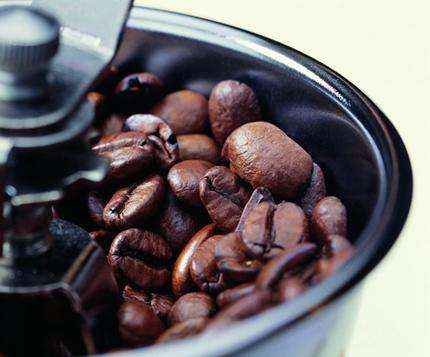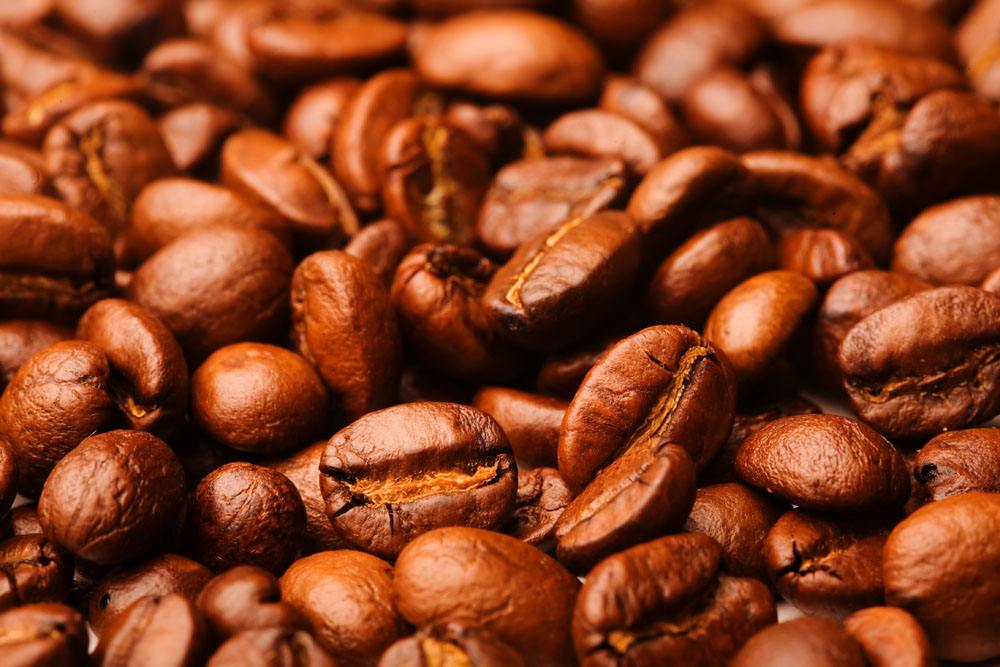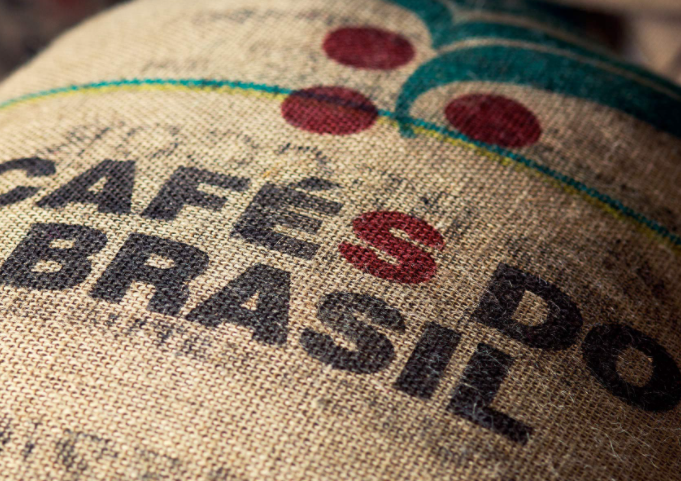Information about Brazilian coffee beans, what are the brands of Brazilian coffee beans?
Following coffee reviews (Wechat public account vdailycom) found that Beautiful Cafe opened a small shop of its own.
What are the Brazilian coffee bean brands?
Brazilian coffee suits the taste of the public. For example, coffee produced in the northern coastal areas has a typical iodine taste, reminiscent of the sea after drinking. This coffee is exported to North America, the Middle East and Eastern Europe. Another kind of coffee that is interesting and worth looking for is washed Bahia. This kind of coffee is not easy to find because Brazil is the world's largest consumer of coffee after the United States, and many of the best coffee can only be found in its domestic market.
In Brazil, the largest producer is Robbins. This kind of coffee is sold in the supermarket. Brazil's Robbins Coffee, sold under the name Conillon, accounts for 15 per cent of total production.

Old bourbon coffee is grown on some estates in the Serrado district of MinasGreais in southeastern Brazil. These estates, such as Caping Blanco (CapinBranco) and Vista Allegre (VistaAllegre), grow old varieties of bourbon coffee on the market. Although they come from the same area, these coffees have their own characteristics. Kapin Blanco coffee tastes smoother than Vesta Allegre coffee, while Vesta Allegre coffee is strong and black, both of which are less acidic. However, like all Brazilian coffee, they are most suitable for drinking when they are fresh and tender, because the older they are, the more acidic they are. These coffee growers have organized themselves into the Brazilian Special Coffee Association (theSpecialityCoffeeAssociationofBrazil).
The most famous is Santos Coffee, which tastes mellow and neutral. It can be boiled directly or mixed with other kinds of coffee beans to form a comprehensive coffee. It is also a good choice.
Other kinds of Brazilian coffee, such as Rio and Parana, can be produced in large quantities because they do not need too much care. Although the taste is rough, it is a kind of high-quality and inexpensive coffee, which has its own standards because it is distributed all over Brazil and varies in quality (NO.2~NO.8 according to the number of sundries, NO.13~NO.19 according to the size of beans, and six grades according to taste). Almost all Arabica varieties are of good quality and stable in price. The most famous one is "Brazil Santos", which has been a necessity of blended coffee and is familiar to the public since ancient times. Recently, the "Guilma Cup" is also highly rated.
Brazilian coffee beans
Brazilian coffee beans refer to all coffee beans grown in Brazil. Except for Sanduo, Brazilian beans are mostly "cheap and good" coffee. Can be used for mass production of comprehensive coffee beans, most of which are re-roasted. The main raw material of instant coffee is also Brazilian coffee beans.
When the coffee bean germ is very fresh, it is artificially refined and naturally dried in the vulva for about 60-70 days, so that the sweetness of the pulp fully infiltrates into the bean.
Characteristics of Brazilian coffee beans
Coffee beans have a strong aroma, moderate bitterness and high texture acidity. The overall taste is soft, low acidity and endless aftertaste.
The taste of Brazilian coffee has a low sour taste, with the sweet and bitter taste of coffee, the entrance is very smooth, but also with a hint of grass aroma, slightly bitter in the fragrance, smooth and smooth, with a pleasant aftertaste.
Brazil is located in the Latin American region of the Western Hemisphere, located in the eastern part of South America and on the west coast of the Atlantic Ocean, bordering all countries on the South American continent except Ecuador and Chile; the vast majority of the territory lies between the equator and the Tropic of Cancer. It is the most tropical country in the world. The territory has a tropical rain forest climate and a tropical prairie climate. The superior tropical natural conditions are very suitable for the growth and production of tropical cash crop coffee. Coffee belongs to Rubiaceae, like heat, about 40 species, and cocoa, tea and called "the world's three beverages".
Brazil makes full use of the tropical geographical environment and attaches importance to the production and sale of coffee, so that the output, export volume and per capita consumption of coffee have been ranked first in the world for many years, and have been known as the "kingdom of coffee". But the hometown of coffee is not in Brazil, but in the Ethiopian province of Kafa in Africa.
Coffee was introduced into Brazil after the 18th century. In 1727, coffee was introduced into Port Belem, Brazil from Guyana. Since then, coffee has settled in Brazil, mainly in the southeast coastal areas of Brazil. Namely, Sao Paulo, Parana, Sao Espinito, Minas Djilas and other four states. From the end of the 18th century to the 1920s, coffee production was at its peak in Brazil, which once accounted for 75% of the world's total coffee production. Over a long period of time, coffee exports accounted for 2. 3% of Brazil's total export revenue, making Brazil a well-deserved "coffee kingdom". The economic crisis that broke out in 1929 sharply reduced the world consumption of coffee, which dealt a heavy blow to the Brazilian coffee economy.
Since then, the proportion of Brazilian coffee production in export earnings has plummeted. In the past 30 years, with the rise and development of Brazilian modern industry, especially steel, shipbuilding, automobile, aircraft manufacturing and other industries, the status of coffee in the national economy has declined year by year, but it is still one of the pillars of Brazil's economy. And Brazil is still the world's largest coffee producer and exporter.
Important Notice :
前街咖啡 FrontStreet Coffee has moved to new addredd:
FrontStreet Coffee Address: 315,Donghua East Road,GuangZhou
Tel:020 38364473
- Prev

The price of Brazilian coffee beans and how to import Brazilian coffee beans
Following Cafe Review (official Wechat account vdailycom) found that the Cafe Beautiful Cafe opened a small shop of its own, the price of Brazilian coffee beans supply one-third of the global coffee demand, but the coffee harvest in Brazil in 2014 was the worst in three years. Coffee prices rose further, once rising above US $2 per pound, and large coffee chains such as Starbucks quickly followed suit to raise the price of coffee drinks. Coffee
- Next

Grades and characteristics of Brazilian Coffee beans methods of boiling Water temperature of Bourbon Coffee beans in South Minas, Brazil
Following caf é (Wechat official account vdailycom) found that Beautiful Cafe opened its own small shop, Brazilian Coffee, which generally refers to coffee produced in Brazil. There are many kinds of Brazilian coffee, and like other Arabica coffee, Brazilian coffee is called Brazils to distinguish it from Milds coffee. As a matter of fact, at present, there is no unified grading in the coffee industry.
Related
- Detailed explanation of Jadeite planting Land in Panamanian Jadeite Manor introduction to the grading system of Jadeite competitive bidding, Red bid, Green bid and Rose Summer
- Story of Coffee planting in Brenka region of Costa Rica Stonehenge Manor anaerobic heavy honey treatment of flavor mouth
- What's on the barrel of Blue Mountain Coffee beans?
- Can American coffee also pull flowers? How to use hot American style to pull out a good-looking pattern?
- Can you make a cold extract with coffee beans? What is the right proportion for cold-extracted coffee formula?
- Indonesian PWN Gold Mandrine Coffee Origin Features Flavor How to Chong? Mandolin coffee is American.
- A brief introduction to the flavor characteristics of Brazilian yellow bourbon coffee beans
- What is the effect of different water quality on the flavor of cold-extracted coffee? What kind of water is best for brewing coffee?
- Why do you think of Rose Summer whenever you mention Panamanian coffee?
- Introduction to the characteristics of authentic blue mountain coffee bean producing areas? What is the CIB Coffee Authority in Jamaica?

